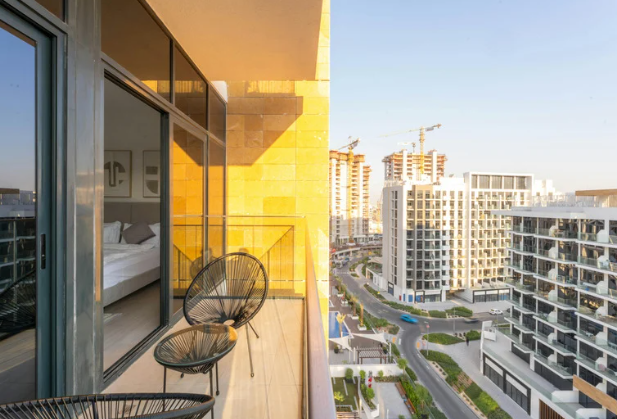

Dubai Real Estate Growth Driven by Strong Regulatory Framework
Dubai’s residential real estate market has seen substantial growth, with one of the most noteworthy periods being the fourth quarter of 2024. During this period, the market recorded an impressive 33,110 residential transactions, totaling AED 65.23 billion in value.
These figures represent an extraordinary 55% increase in the number of transactions year-over-year, while the transaction value surged by 44%. This growth is indicative of both the strength and stability of Dubai’s housing market, signaling that it continues to be an attractive destination for local and international investors.
Furthermore, these statistics highlight the resilience and expansion of Dubai’s property sector in an increasingly competitive global market. A significant driver of this growth is Dubai’s robust regulatory environment and its policies aimed at fostering a thriving real estate sector.
The government has worked consistently to implement measures that enhance the ease of doing business, promote foreign investment, and ensure a secure and predictable market. For instance, the introduction of long-term visas for investors, the relaxation of property ownership laws for foreign nationals, and the simplification of property registration processes have all contributed to making Dubai an attractive investment hub.
These regulatory measures have been instrumental in creating a favorable investment climate, which has attracted buyers and investors from around the world, all seeking to capitalize on Dubai’s expanding real estate market. The Dubai Real Estate Sector Strategy 2033 plays an essential role in shaping the future of the city’s real estate sector.
This long-term strategy aims to double the real estate sector’s contribution to the city’s GDP and increase the market value to AED 1 trillion. This ambitious vision is expected to drive the growth of the sector over the coming decade, creating opportunities for developers, investors, and homebuyers.
The strategy also focuses on expanding homeownership opportunities for residents and improving the quality of life within Dubai, all while maintaining the city’s status as a global business hub. It provides a clear framework for growth and development, ensuring that the real estate market remains robust and resilient even amid global economic uncertainties.
Another trend contributing to the growth of Dubai’s real estate market is the increased demand for smaller residential units. In the fourth quarter of 2024, properties under 1,000 square feet accounted for 75% of the total number of transactions, which marks a notable rise from 61% in the same period the previous year.
This shift is reflective of changing consumer preferences, where affordability and practicality are becoming increasingly important to potential buyers. Smaller properties, often found in mid-range price brackets, are becoming an attractive option for young professionals, small families, and first-time homebuyers.
With property prices in Dubai remaining relatively high compared to other global cities, the demand for smaller homes indicates that many buyers are seeking cost-effective options without compromising on quality. This growing demand for smaller properties is also seen in the price points of transactions. In the last quarter of 2024, 74% of all residential transactions were for properties priced under AED 2 million.
This shows that affordable homes are leading the market in terms of both volume and value. It’s also indicative of the fact that many Dubai residents are increasingly looking for properties that are within reach of the average household, as opposed to luxury estates that cater only to the ultra-wealthy. As the market continues to cater to this middle segment, the number of affordable housing units is expected to increase, offering more opportunities for a wider demographic to enter the market.
The geographical spread of residential transactions also reveals some interesting trends. The areas with the highest number of transactions during the fourth quarter of 2024 were Dubailand, Jumeirah, and Mohammed Bin Rashid City. These three areas accounted for 59% of the total residential transactions, with Dubailand leading the charge at 28%.
The popularity of these areas can be attributed to their strategic locations, accessibility, and the availability of affordable housing options. Additionally, these locations have seen extensive development, including new retail, entertainment, and infrastructure projects, making them attractive for both investors and end-users.
The concentration of transactions in these areas highlights the growing demand for housing in specific regions of the city, underscoring the importance of location in determining property value and appeal. The continued growth and success of Dubai’s real estate market can be attributed to several factors, with the regulatory environment playing a key role.
The government’s policies and efforts to streamline the real estate development process, attract foreign investment, and enhance the overall market ecosystem have been crucial in maintaining the sector’s growth. Additionally, the demand for smaller, more affordable properties reflects broader market trends and shifts in consumer behavior, highlighting the evolving needs of buyers.
The Dubai Real Estate Sector Strategy 2033 provides a clear vision for the future, positioning the city’s property market for continued growth and long-term stability. Dubai’s real estate market has proven to be resilient, dynamic, and adaptive to changing economic and market conditions.
The steady increase in residential transactions, coupled with the government’s regulatory support, signals a promising future for the sector. As the city continues to grow and attract international investors, the importance of clear and effective regulations will remain essential in driving the success of the real estate market.
With continued investment in infrastructure, attractive regulatory policies, and a focus on meeting the demands of homebuyers, Dubai’s real estate market will remain a leading force in the global property sector. The future of Dubai’s housing market is bright, with endless opportunities for growth and innovation.




































